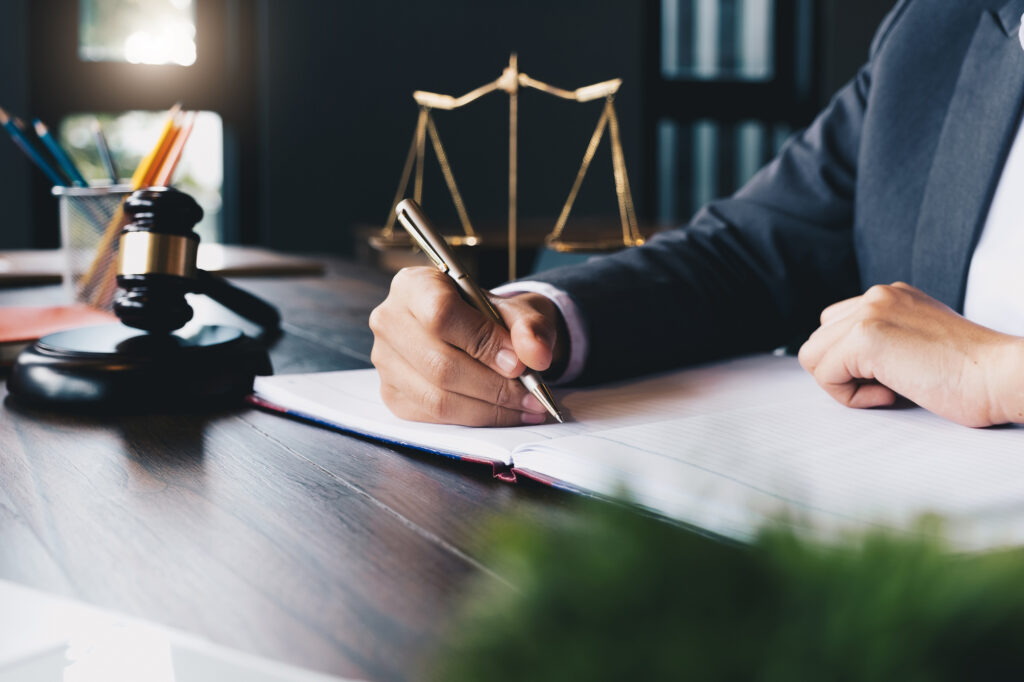The Thin Line: Understanding When Wrongful Death Becomes A Criminal Offense
In law, wrongful death and criminal offenses are two distinct areas that occasionally intersect, creating complex legal scenarios. This exploration aims to clarify the nuanced distinctions and intersections between wrongful death cases and criminal offenses, ensuring readers grasp the circumstances under which a wrongful death transitions into the realm of criminal accountability.

The Role Of Legal Representation
In navigating the complex landscape of wrongful death that borders on criminal offense, the expertise of a wrongful death attorney Denver becomes invaluable. These legal professionals specialize in dissecting the intricate details of each case, ensuring that the victim’s family receives the justice and compensation they deserve while addressing any criminal implications.
What Constitutes Wrongful Death?
Wrongful death is a legal term used when the negligence or misconduct of another person or entity causes an individual’s death. These cases typically involve civil lawsuits, where the deceased’s family seeks compensation for their loss. The criteria for what constitute wrongful death can include:
- Medical malpractice leading to a patient’s death
- Fatal accidents caused by negligent or reckless driving
- Workplace accidents due to inadequate safety measures
- Deaths caused by defective products
When Does It Become A Criminal Offense?
A wrongful death becomes a criminal offense when the actions leading to the death involve criminal behavior such as recklessness, gross negligence, or intentional harm. Key factors include:
- Manslaughter: This involves unintentional killing resulting from a reckless or criminal negligent action.
- Murder: This refers to the intentional and unlawful killing of another person.
The Legal Process: Civil vs. Criminal
Understanding the legal processes involved in civil and criminal cases related to wrongful death illuminates the differences in objectives, standards of proof, and outcomes.
- Civil Lawsuits For Wrongful Death:
- Objective: to obtain compensation for the deceased’s family
- Standard Of Proof: Preponderance of the evidence (more likely than not)
- Possible Outcomes: Financial compensation and no incarceration for the defendant.
- Criminal Prosecution For Unlawful Deaths:
- Objective: To punish the perpetrator and deter future crimes.
- Standard Of Proof: Beyond a reasonable doubt.
- Possible Outcomes: Incarceration, fines, and other criminal penalties.
Examples And Scenarios
Illustrative scenarios can help clarify when wrongful death crosses into criminal territory:
- A Drunk Driving Incident: If a person drives under the influence and causes an accident that results in death, this could lead to criminal charges like manslaughter, in addition to a civil wrongful death lawsuit.
- A Fatal Workplace Accident: If an employer flagrantly disregards safety regulations, leading to a fatal accident, they might face criminal charges for gross negligence, alongside a civil lawsuit.
Preventative Measures And Public Safety
The interaction of wrongful death and criminal law underscores the importance of stringent safety regulations and ethical conduct to prevent such tragic outcomes. Public awareness and legal accountability are crucial in preventing negligence and intentional harm that lead to wrongful deaths.
Understanding Legal Terms And Processes
Diving deeper into the legal intricacies, it’s essential to understand the terminology and processes that play a pivotal role in distinguishing wrongful death cases from criminal offenses.
- Negligence vs. Recklessness: Negligence refers to the failure to take reasonable care to avoid causing injury or loss to another person. In contrast, recklessness involves disregarding the known risks of actions that could harm others. Negligence might lead to a wrongful death claim, whereas recklessness can escalate the matter to a criminal offense.
- Intent: The element of intent is crucial in determining the criminal nature of an act. If someone intentionally causes the death of another, this is pursued as a murder charge in criminal court, far beyond the scope of a civil wrongful death claim.
Challenges In Proving Wrongful Death As A Criminal Offense
Proving that a wrongful death constitutes a criminal offense involves several challenges:
- Gathering Evidence: Collecting Concrete evidence to prove beyond a reasonable doubt that the death resulted from criminal actions is often more complex than in civil cases.
- Eyewitness Testimonies: Reliability and availability of witnesses who can attest to the criminal nature of the defendant’s actions.
- Forensic Analysis: In some cases, forensic evidence becomes crucial in linking the accused’s actions directly to the victim’s death.
Impact On Families And Society
The impact of wrongful death, especially when it escalates to a criminal offense, is profound not only on the victim’s family but also on society. Families may face:
- Emotional Trauma: families endure lasting emotional pain and loss beyond the legal battles.
- Financial Strain: The loss of a family member can also mean the loss of income and financial stability, compounded by the costs of legal proceedings.
- Societal Implications: High-profile cases can lead to public outcry, demanding changes in laws or regulations to prevent similar incidents.
Prevention And Responsibility
To mitigate the risks of wrongful deaths escalating into criminal offenses, individuals and organizations must prioritize safety and ethical conduct:
- Adherence To Safety Protocols: Strictly following safety guidelines can significantly reduce accidents and fatalities.
- Education And Training: Regular training for employees and public education campaigns can raise awareness about the consequences of negligence and recklessness.
- Legal Reforms: Advocating for stronger laws and regulations to protect public safety and hold offenders accountable is essential.
Seeking Justice And Closure
For families navigating the aftermath of a wrongful death, understanding their legal rights and options is crucial. Seeking the expertise of a wrongful death attorney, especially in complex cases that may involve criminal elements, is a vital step towards achieving justice and closure. Legal professionals can guide families through the maze of legal procedures, advocating on their behalf to ensure that the responsible parties are held accountable for their actions.
The Role Of Government And Regulatory Bodies
Government and regulatory bodies play a significant role in delineating the thin line between wrongful death as a civil matter and its transition into a criminal offense. These entities are tasked with creating, enforcing, and updating laws and regulations that protect public safety and define legal standards for negligence and criminal behavior.
- Regulatory Oversight: Agencies such as the Occupational Safety And Health Administration (OSHA) and the National Highway Traffic Safety Administration (NHTSA) set safety standards and regulations to prevent workplace accidents and traffic fatalities, respectively.
- Legislative Actions: Lawmakers are responsible for enacting and revising laws that adequately penalize wrongful actions leading to death, ensuring they reflect society’s values and the need for justice.
Final Thoughts

The transition of wrongful death into a criminal offense hinges on the nature of the actions that caused the death. While all wrongful deaths represent profound losses, those stemming from criminal actions carry an added weight of legal culpability. It is the legal system’s role, through both civil and criminal proceedings, to ensure that justice is served, emphasizing the importance of skilled legal representation in these complex cases.

